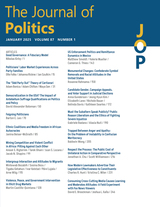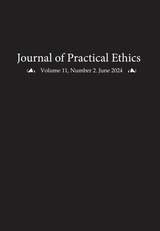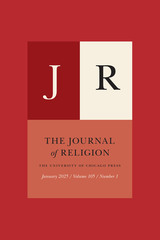3 books about Spanish Film

Architecture and the Urban in Spanish Film
Edited by Susan Larson
Intellect Books, 2021
The first edited collection in English on urban space and architecture in Spanish film from 1896 to the present.
Building on existing film and urban histories, this collection examines Spanish film through contemporary interdisciplinary theories of urban space, the built environment, visuality, and mass culture from the industrial age to the digital present.
Architecture and the Urban in Spanish Film brings together innovative scholarship from an international and interdisciplinary group of film, architecture, and urban studies scholars as they explore the reciprocal relationship between the seventh art and the built environment. The contributors explore a wide range of topics, including the role of film in the shifting relationship between private and public; the ways cinema as a new technology reshaped how cities and buildings are built and inhabited; the question of the mobile gaze; film and everyday life; monumentality and the construction of historical memory for a variety of viewing publics; and the effects of the digital and the virtual on filmmaking and spectatorship.
This engaging collection will interest anyone researching, teaching, and studying Spanish film, international film studies, urban, and cultural studies.
Building on existing film and urban histories, this collection examines Spanish film through contemporary interdisciplinary theories of urban space, the built environment, visuality, and mass culture from the industrial age to the digital present.
Architecture and the Urban in Spanish Film brings together innovative scholarship from an international and interdisciplinary group of film, architecture, and urban studies scholars as they explore the reciprocal relationship between the seventh art and the built environment. The contributors explore a wide range of topics, including the role of film in the shifting relationship between private and public; the ways cinema as a new technology reshaped how cities and buildings are built and inhabited; the question of the mobile gaze; film and everyday life; monumentality and the construction of historical memory for a variety of viewing publics; and the effects of the digital and the virtual on filmmaking and spectatorship.
This engaging collection will interest anyone researching, teaching, and studying Spanish film, international film studies, urban, and cultural studies.
[more]
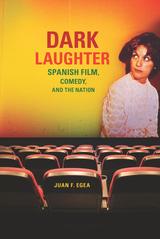
Dark Laughter
Spanish Film, Comedy, and the Nation
Juan F. Egea
University of Wisconsin Press, 2013
In Dark Laughter, Juan F. Egea provides a remarkable in-depth analysis of the dark comedy film genre in Spain, as well as a provocative critical engagement with the idea of national cinema, the visual dimension of cultural specificity, and the ethics of dark humor.
Egea begins his analysis with General Franco's dictatorship in the 1960s—a regime that opened the country to new economic forces while maintaining its repressive nature—exploring key works by Luis García Berlanga, Marco Ferreri, Fernando Fernán-Gómez, and Luis Buñuel. Dark Laughter then moves to the first films of Pedro Almodóvar in the early 1980s during the Spanish political transition to democracy before examining Alex de la Iglesia and the new dark comedies of the 1990s. Analyzing this younger generation of filmmakers, Egea traces dark comedy to Spain's displays of ultramodernity such as the Universal Exposition in Seville and the Barcelona Olympic Games.
At its core, Dark Laughter is a substantial inquiry into the epistemology of comedy, the intricacies of visual modernity, and the relationship between cinema and a wider framework of representational practices.
Egea begins his analysis with General Franco's dictatorship in the 1960s—a regime that opened the country to new economic forces while maintaining its repressive nature—exploring key works by Luis García Berlanga, Marco Ferreri, Fernando Fernán-Gómez, and Luis Buñuel. Dark Laughter then moves to the first films of Pedro Almodóvar in the early 1980s during the Spanish political transition to democracy before examining Alex de la Iglesia and the new dark comedies of the 1990s. Analyzing this younger generation of filmmakers, Egea traces dark comedy to Spain's displays of ultramodernity such as the Universal Exposition in Seville and the Barcelona Olympic Games.
At its core, Dark Laughter is a substantial inquiry into the epistemology of comedy, the intricacies of visual modernity, and the relationship between cinema and a wider framework of representational practices.
[more]
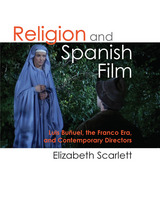
Religion and Spanish Film
Luis Buñuel, the Franco Era, and Contemporary Directors
Elizabeth Scarlett
University of Michigan Press, 2014
Treatments of religion found in Spanish cinema range from the pious to the anticlerical and atheistic, and every position in between. In a nation with a strong Catholic tradition, resistance to and rebellion against religious norms go back almost as far as the notion of “Sacred Spain.” Religion and Spanish Film provides a sustained study of the religious film genre in Spain practiced by mainstream Francoist film makers, the evolving iconoclasm, parody, and reinvention of the Catholic by internationally renowned Surrealist Luis Buñuel, and the ongoing battle of the secular versus the religious manifested in critically and popularly acclaimed directors Pedro Almodóvar, Julio Medem, Alejandro Amenábar, and many others. The conflicted Catholicism that emerges from examining religious themes in Spanish film history shows no sign of ending, as unresolved issues from the Civil War and Franco dictatorship, as well as the unsettled relationship between Church and State, continue into the present.
[more]
READERS
Browse our collection.
PUBLISHERS
See BiblioVault's publisher services.
STUDENT SERVICES
Files for college accessibility offices.
UChicago Accessibility Resources
home | accessibility | search | about | contact us
BiblioVault ® 2001 - 2025
The University of Chicago Press


